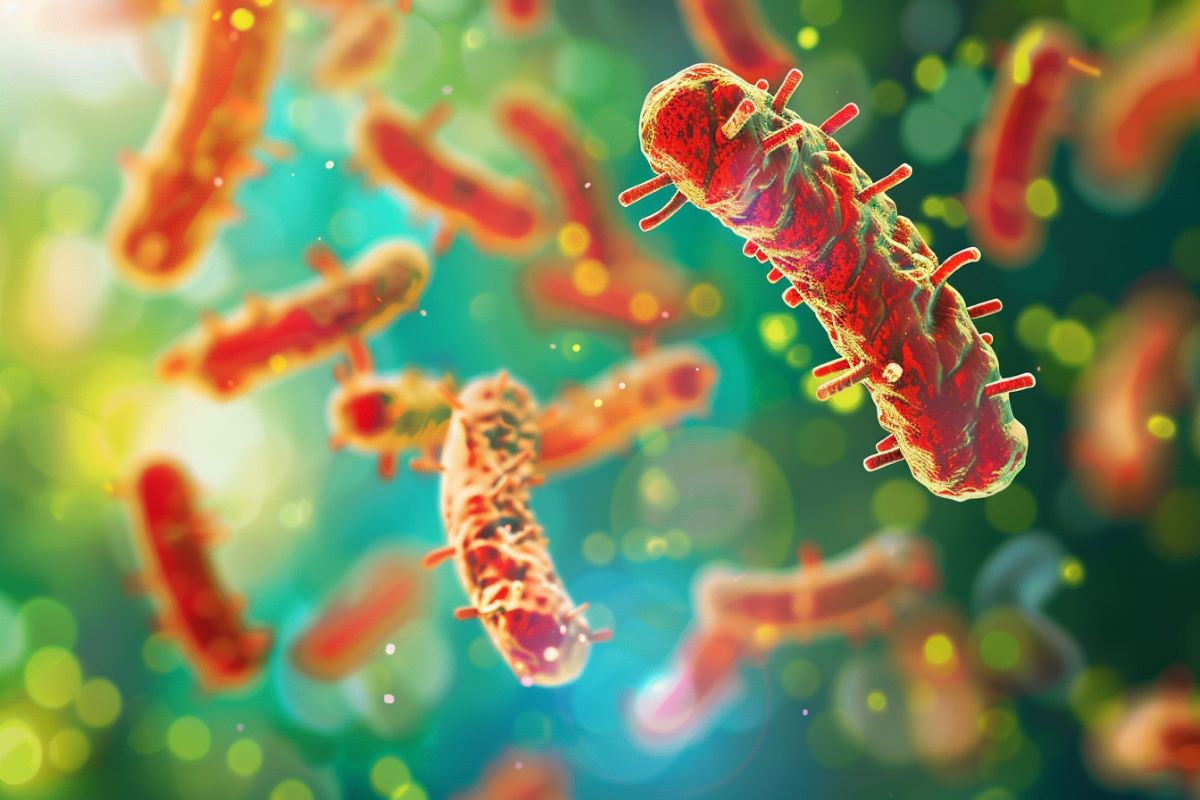Summary: A new study reveals a link between gut bacteria and Parkinson’s disease (PD). Researchers have discovered a decrease in genes responsible for the synthesis of essential B vitamins in Parkinson’s patients, which can weaken the intestinal barrier and lead to inflammation in the brain. This finding suggests that vitamin B supplementation may be a potential therapeutic avenue for PD.
Highlights:
- Reduction of vitamin B-synthesizing bacteria in the intestines of Parkinson’s patients.
- A weakened intestinal barrier due to vitamin B deficiency can lead to brain inflammation.
- Vitamin B supplementation may be a potential treatment for PD.
Source: Nagoya University
A study conducted by the Graduate School of Medicine at Nagoya University in Japan has revealed a link between the gut microbiota and Parkinson’s disease (PD). Researchers found a reduction in gut bacteria of genes responsible for the synthesis of essential B vitamins B2 and B7.
They also identified a relationship between the absence of these genes and low levels of agents that help maintain the integrity of the intestinal barrier. This barrier prevents toxins from entering the bloodstream, which causes the inflammation seen in PD.
Their findings, published in npj Parkinson’s diseasesuggest that treatment with B vitamins to address these deficiencies can be used to treat PD.

PD is characterized by a variety of physical symptoms that interfere with daily activities and mobility, such as tremors, slow movements, stiffness, and balance problems. Although the frequency of PD can vary among populations, it is estimated to affect approximately 1% to 2% of people aged 55 years or older.
Various physiological processes are strongly influenced by the microorganisms present in the gut, collectively called the gut microbiota. Under ideal conditions, the gut microbiota produces SCFAs and polyamines, which maintain the intestinal barrier preventing toxins from entering the bloodstream.
Toxins in the blood can be transported to the brain where they cause inflammation and affect neurotransmission processes essential for maintaining mental health.
To better understand the relationship between gut microbial characteristics in PD, Hiroshi Nishiwaki and Jun Ueyama from the Nagoya University Graduate School of Medicine conducted a metaanalysis of stool samples from PD patients of the Japan, United States, Germany, China and Taiwan.
They used shotgun sequencing, a technique that sequences all of the genetic material in a sample. This is an invaluable tool because it provides researchers with a better understanding of the microbial community and genetic makeup of the sample.
They observed a decrease in bacterial genes responsible for the synthesis of riboflavin (vitamin B2) and biotin (vitamin B7) in patients diagnosed with PD. Riboflavin and biotin, derived from both dietary and gut microbiota, have anti-inflammatory properties, which may counteract the neuroinflammation seen in diseases like PD.
B vitamins play a crucial role in the metabolic processes that influence the production and functions of short-chain fatty acids (SCFAs) and polyamines, two agents that help maintain the integrity of the intestinal barrier, preventing toxins from entering in the blood circulation. An examination of fecal metabolites revealed a decrease in both in PD patients.
The results point to a potential explanation for the progression of Parkinson’s disease. “Polyamine and SCFA deficiencies could lead to a thinning of the intestinal mucus layer, thereby increasing intestinal permeability, two phenomena that have been observed in Parkinson’s disease,” Nishiwaki explained.
“This higher permeability exposes nerves to toxins, contributing to the abnormal aggregation of alpha-synuclein, activating immune cells in the brain and leading to long-term inflammation.”
He added: “Supplementation therapy targeting riboflavin and biotin shows promise as a potential therapeutic avenue to relieve PD symptoms and slow disease progression. »
The study results highlight the importance of understanding the complex relationship between the gut microbiota, metabolic pathways and neurodegeneration. In the coming years, treatment could potentially be personalized based on each patient’s unique microbiological profile. By altering bacterial levels in the microbiome, doctors can potentially delay the onset of symptoms associated with diseases like PD.
“We could do gut microbiota analysis of patients or do fecal metabolite analysis,” Nishiwaki said.
“Using these results, we could identify individuals with specific deficiencies and administer oral riboflavin and biotin supplements to those with diminished levels, potentially creating an effective treatment.”
About this Parkinson’s research news
Author: Matthew Coslett
Source: Nagoya University
Contact: Matthew Coslett – Nagoya University
Picture: Image is credited to Neuroscience News
Original research: Free access.
“Meta-analysis of shotgun sequencing of gut microbiota in Parkinson’s disease” by Hiroshi Nishiwaki et al. npj Parkinson’s disease
Abstract
Meta-analysis of shotgun sequencing of gut microbiota in Parkinson’s disease
We aimed to identify gut microbial characteristics of Parkinson’s disease (PD) across countries by meta-analyzing our shotgun fecal sequencing dataset of 94 PD patients and 73 controls in Japan with five previously reported datasets from the United States, Germany, China1, China2, and Taiwan. GC-MS and LC-MS/MS assays were established to quantify fecal short-chain fatty acids (SCFAs) and fecal polyamines, respectively. α diversity increased in PD across six datasets.
Taxonomic analysis showed that the species Akkermansia muciniphila increased in PD, while species Intestinal roseburia And Faecalibacterium prausnitzii decreased in PD.
Pathway analysis showed that genes in riboflavin and biotin biosyntheses were significantly decreased in PD after adjustment for confounding factors. Five out of six categories of carbohydrate-active enzymes (CAZymes) showed a decrease in PD.
Metabolomic analysis of our fecal samples revealed that fecal SCFAs and polyamines were significantly decreased in PD. Riboflavin and biotin biosynthesis genes were positively correlated with fecal SCFA and polyamine concentrations.
The bacteria responsible for the decrease in riboflavin biosynthesis in Japan, the United States and Germany were different from those in China1, China2 and Taiwan. Likewise, different bacteria explain the decrease in biotin biosynthesis in both groups of countries.
We postulate that decreased SCFAs and polyamines reduce the intestinal mucus layer, which then facilitates the formation of abnormal α-synuclein fibrils in the intestinal neural plexus in PD, and also causes neuroinflammation in PD.